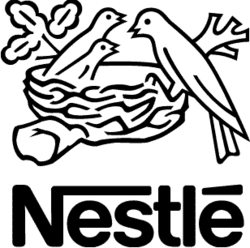
Dell reinvented their social media efforts after a negative experience with a blogger. Comcast did something similar after a negative video. Nestle's current situation may also provide a similar incentive for the brand to start using social media more actively as well. It is easy to pile on to the negativity because no one is yet answering the deluge of comments on behalf of the brand, but from a marketing point of view the approach they should take seems relatively straightforward. If I were trying to help them turn their Facebook fortunes around, here are some initial efforts I would suggest to focus on:
- Apologize and change their tone. Interestingly, much of the negativity in this case came not from any business practice or specific thing Nestle said, but rather HOW they said it through their Facebook account. Just as emails are open to misinterpretation, many consumers interpreted the written status updates on the Nestle page as rude and confrontational. Thus the uproar about the brand page ensued. To correct this, the brand needs to apologize and change the tone of the page (presumably by putting a different team member in charge of it). In my last post I talked about the importance of the Community Manager. This is the missing link that Nestle needs to find someone to fill.
- Use employees for more than just HR. There are some great stories from real employees of Nestle about why they work at the brand and how much they love it. The problem is, these stories are currently buried on an HR and recruiting focused tab on the Nestle USA page. This content goes a long way to humanizing the brand of Nestle as a real company with real people working there and is underutilized. One thing they could consider is turning this into a more vocal group of employees and perhaps even having them contribute to the Facebook conversation. Nothing helps to change perception as much as putting a real face behind a faceless corporation.
- Share positive stories more transparently. You may be surprised to hear this, but Nestle has many great programs they do to help people in need, save the environment and move the overall industry they are part of toward the future. These are great stories that are not being told in a way that people can find or know about. Social media is a great way to tell these stories more powerfully, and using it across the board to become better storytellers could help to counter some of the negativity and (more importantly) give their advocates something positive to talk about.
- Consolidate branded Facebook efforts. There are multiple Facebook pages for the brand resulting in some confusion from consumers about which is which – particularly when it comes to the brand voice in the USA versus that in Europe. They don't necessarily need to combine all the accounts, but the conversation strategy across the accounts needs to be more coordinated so they can build off one another and send people to the most relevant place for information and to engage.
- Find and encourage more advocates. Ironically, this dialogue on Facebook has also brought out previously silent brand advocates for Nestle. There are dozens of people commenting about how they like Nestle products, how Nestle is being unfairly blasted, and even that Nestle is better than other companies who are staying under the radar and therefore not seeing as much negative publicity. Whether or not you agree with these people, the point is that there ARE advocates out there and Nestle will need to find a way to identify them and thank them for their support. Long term, it is connecting with these people that will truly help Nestle to turn their reputation around on Facebook and beyond in social media.
* Full Disclaimer: For the record, I am not a Nestle hater and have had the chance to meet several members of Nestle's marketing team in the past year. Though I do not currently work with them [nor have I ever in the past], I do have a more personal experience as I know some of their communications team members personally. I'm not receiving any compensation for this post and no one has asked me to share this opinion – this is my personal take on Nestle's current situation and what a solution to it may be.






WE RECENTLY REMOVED COMMENTING - LEARN WHY HERE >